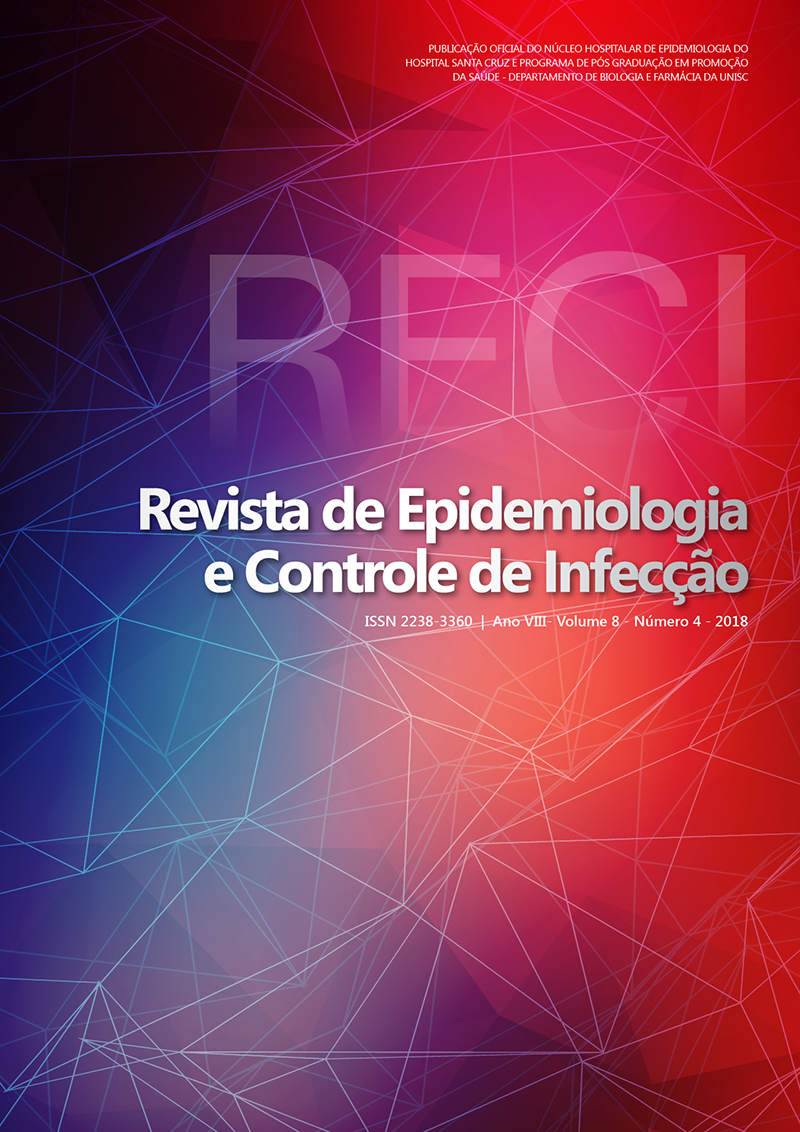Molecular characteristics of vancomycin-susceptible Staphylococcus aureus could help to predict treatment failure due to reduced vancomycin susceptibility
DOI:
https://doi.org/10.17058/reci.v8i4.11393Abstract
Background and Objectives: Methicillin-resistant Staphylococcus aureus (MRSA) is one of the most frequent causes of healthcare-associated and community-acquired infections and with its advancement, vancomycin became the main therapeutic option. However, its indiscriminate 2 use favored the emergence of MRSA with reduced susceptibility to vancomycin, commonly associated with vancomycin treatment failure, persistent bacteremia, prolonged hospitalization and adverse clinical outcome. This study evaluated the occurrence of MRSA with reduced vancomycin susceptibility and determined some molecular characteristics in comparison with vancomycin-susceptible MRSA (VS-MRSA). Methods: Determination of antimicrobial susceptibility profile, the minimum inhibitory concentration (MIC) and minimum bactericidal concentration (MBC) for vancomycin, vancomycin-tolerance, SCCmec and agr typing were performed in a total of 177 MRSA. Thereafter, they were screened for hVISA by BHIA-3V and BHIA-6V and confirmed with population analysis profile - area under the curve method (PAPAUC). Results: VT-MRSA and hVISA phenotypes were found in 13.6% and 5.1% of clinical isolates of MRSA, respectively, and the presence of hVISA was statistically significant among VT-MRSA isolates (p<0.05). In VT-MRSA, SCCmec type II was significantly more frequent than in non-VT-MRSA, as well as the presence of agr group II. Conclusion: Molecular characteristics found in MRSA are important for epidemiology, as well as demonstrate a pattern in reduced vancomycin susceptibility isolates. Non-conventional tests for detection of these characteristics might be performed to prevent misidentification of VS-MRSA that, consequently, results in vancomycin treatment failures.Downloads
Downloads
Published
How to Cite
Issue
Section
License
The author must state that the paper is original (has not been published previously), not infringing any copyright or other ownership right involving third parties. Once the paper is submitted, the Journal reserves the right to make normative changes, such as spelling and grammar, in order to maintain the language standard, but respecting the author’s style. The published papers become ownership of RECI, considering that all the opinions expressed by the authors are their responsibility. Because we are an open access journal, we allow free use of articles in educational and scientific applications provided the source is cited under the Creative Commons CC-BY license.


